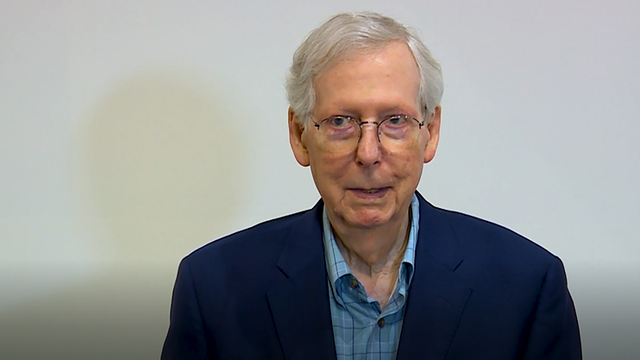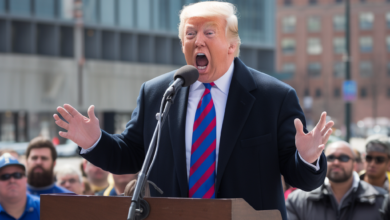Capitol Hill doctor: McConnell did not have a stroke or seizure when freezing before cameras

The latest communication from Capitol’s attending physician, Dr. Brian Monahan, has clarified that Senate GOP Leader Mitch McConnell did not suffer a stroke, seizure, or Parkinson’s disease following recent health incidents captured on television.
McConnell, at 81 years of age, underwent evaluation by a team of neurologists after experiencing two alarming episodes in front of the camera lens.
This new statement, released by McConnell’s office on Tuesday, seeks to address concerns raised after the Senator appeared to freeze on camera for the second time in as many months.
Questions had arisen about his ability to continue his influential role within the Senate GOP Conference. In response to the incident in Covington, Kentucky, last week, McConnell underwent a comprehensive evaluation involving consultation with four neurologists, as disclosed by a source familiar with the situation.
Dr. Monahan’s letter on Tuesday detailed the evaluations conducted, which included brain MRI imaging and an assessment of electrical brain activity. The conclusion stated unequivocally that there is no evidence of a seizure disorder, stroke, transient ischemic attack (TIA), or movement disorder such as Parkinson’s disease.
The exact cause of McConnell’s temporary lapses, which lasted approximately 30 seconds each time, remains unclear. Initially, his office attributed these incidents to “lightheadedness.” Dr. Monahan had previously noted that individuals recovering from concussions, such as McConnell, often experience sensations of lightheadedness. It’s worth recalling that McConnell sustained a concussion and broken ribs in March when he fell at a Washington hotel, striking his head. This injury necessitated a nearly six-week absence from Senate duties.
As the Senate reconvenes following a five-week recess, GOP senators will likely face inquiries regarding their confidence in McConnell’s ability to lead the Republican conference. McConnell has held this influential position for an impressive 16 years, marking a longer tenure than any previous party leader in Senate history. While he is expected to continue as leader through the current Congress, speculation is mounting about his plans for the next Congress, commencing in 2025.





